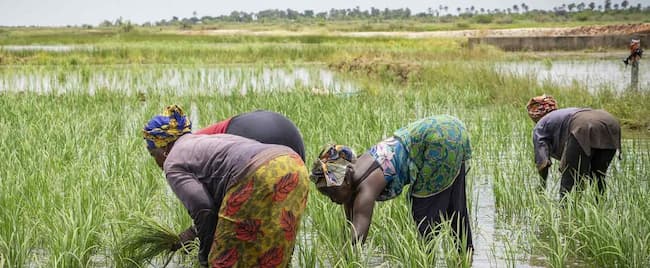The Federal Government has officially acknowledged the outbreak of a devastating ginger blight epidemic in four states across Nigeria, leading to staggering losses amounting to over N12 billion for ginger farmers.
This revelation was made during the inauguration of the National Ginger Blight Epidemic Control Taskforce held in Abuja, where government officials disclosed the widespread impact of the fungal disease on ginger farms in Kaduna, Nasarawa, Plateau, and the Federal Capital Territory.
Aliyu Abdullahi, the Minister of State for Agriculture and Food Security, expressed grave concern over the dire consequences of the blight, emphasizing its detrimental effects on farmers’ livelihoods and Nigeria’s global standing as the world’s second-largest ginger producer.
Abdullahi lamented, “Our preliminary estimates suggested that affected farmers in southern Kaduna lost over N12 billion.” He further noted that since more than 85 percent of Nigeria’s ginger cultivation takes place in this region, the loss of cultivated land could exceed 70 percent of the total area.
Despite the alarming scale of losses, the Federal Government has announced plans to provide relief to affected farmers through the National Agricultural Development Fund. A N1.6 billion recovery package will be launched specifically targeting ginger-producing areas to mitigate the financial impact of the epidemic.
Highlighting the importance of proactive measures in safeguarding agricultural resources, Abdullahi stressed the need for investments in research, extension services, and robust farmer support systems to ensure the resilience of Nigeria’s agricultural sector.
Abubakar Abdullahi, Chairman of the task force committee, echoed the sentiments, acknowledging the adverse impact of the ginger blight on the Gross Domestic Product derived from the subsector. He emphasized the urgency of establishing various subcommittees to address the crisis effectively.
Assuring the minister of their dedication to resolving the situation, Abdullahi appealed for the empowerment of the committee to enlist additional members capable of contributing value to the task force’s objectives, thereby enhancing its efficiency and effectiveness in combating the epidemic.













